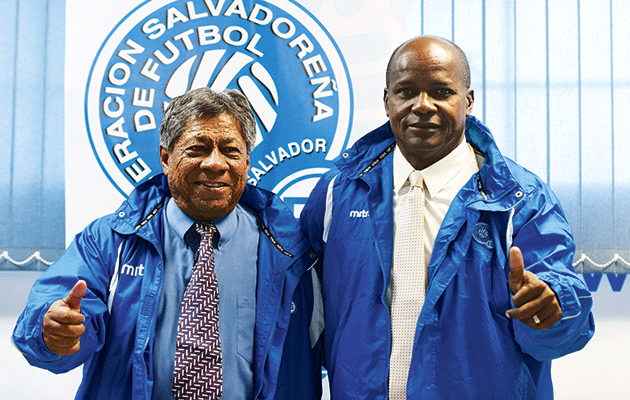When Albert Roca parted company with El Salvador, the national coach delivered a parting shot that seemed a somewhat self-serving critique following a largely indifferent 14-month reign.
However, the curious words of his interim replacement, Jorge Rodriguez, uttered in the aftermath of a tricky but successfully negotiated World Cup qualifying tie against Caribbean contender Curacao, lent some weight to the Spaniard’s accusations.
In the aftermath of the two-legged qualifier, Rodriguez and at least one player – defender Alexander Larin – referred to a lack of material support for the national team. In echoes of Roca’s gripes, he lamented the players’ poor facilities and inadequate accommodation when they gather for matches.
The game in the Central American country is in the doldrums and has been for decades. From the grassroots up, training pitches are in a sorry state, the national league operates at a low level and player development is considered poor – all areas identified as problematic by Roca.
But the elephant in the room was the relative youth of his squad. With an average age of 25 at last summer’s Gold Cup, the El Salvadorians bowed out in the group stage after draws with Canada and Costa Rica, and a narrow 1-0 defeat by Jamaica. Yet the events that landed Roca with such a young team were anything but organic; rather,
the result of a match-rigging scandal that rocked El Salvadorian football in 2013. Some 14 players were given life bans for fixing national-team matches, including a 5-0 defeat by Mexico in the Gold Cup in 2011. Another eight were suspended for between six months and five years.
Couple those circumstances with a football-loving nation and media that all too easily recalls a time when El Salvador qualified for the World Cup – their last of their two appearances was at Spain 1982 – and Roca may well have inherited an impossible task.
On closer inspection, results during his tenure were not disastrous. Besides the close nature of their Gold Cup matches, Roca led his side to a credible fourth-placed finish at last year’s Centroamericana Cup, ahead of regional heavyweight and neighbour Honduras.
Rodriguez seemed certain to take over from Roca on a full-time basis before talks with the Salvadorian Football Federation faltered. It’s unclear whether the man they call “Zarco” declined to assume control over a lack of guarantees on the type of conditions the players could expect in future. Officials said Rodriguez was their “plan A”. Now he will remain in charge of El Salvadorian top league club Isidro Metapan, where he has shone since taking the reins in 2013.
The federation turned instead to Honduran coach Ramon Maradiaga, a former boss of the national team of both his homeland and that of Guatemala. Picked up from Honduran league minnows Vida, the 60-year-old has had a peripatetic managerial career – though he can claim a much longer track record in coaching than Rodriguez, who remains in his first job.
So these are interesting times for football in El Salvador. This era can be regarded as post-scandal, inhabited by a new generation devoid of nearly an entire squad summarily castigated for rigging. They won’t be under the more illustrious tutelage of one-time Barcelona assistant Roca, who tendered his resignation after bowing out of the Gold Cup. But perhaps his influence and critique can steer El Salvador toward a more productive – and salubrious – future.
Poverty and corruption plague a nation only a couple of decades removed from a brutal civil war.
It is countries like El Salvador where illegal betting, orchestrated by the kind of mobsters who brought down the bulk of the national squad, finds its most fertile ground. Low wages mean the bounties offered can prove a strong temptation. Steps have been taken to educate the next generation, but the threat lingers.
Maradiaga is in charge for the duration of El Salvador’s qualification campaign for Russia 2018, the next stage of which sees them in a group that kicks off in November and includes Mexico, Honduras and Canada. It looks a formidable task ahead for the young Salvadorians and perhaps the 2022 incarnation will be a slightly more realistic proposition.
By Bryan Kay








